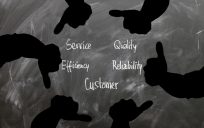There is a current phenomenon across the country and in business regarding a technique to relieve stress called “mindfulness.” I am addressing this topic because it is popular and has benefits in the workplace. I should be frank and disclose that I have seen many movements come and go concerning work and how to best conduct it but I think that using proven techniques to relax and remain engaged have value.
Mindfulness is fairly described as the ability to be fully present in the moment. It is being able to block out distractions and other concerns in order to focus on the task at hand. This is not easy to do in our busy lives while working on multiple projects and the need to meet deadlines. However, providing time and some energy to develop this skill is worthwhile.
Mindfulness has arisen from meditation with its Eastern origins and self reflection to help people reduce stress and to more effectively remain present while working and managing staff. The use of meditation and, thus mindfulness, has made its way into the West and is generally accepted to be useful.
The benefits to being mindful are having better focus on what you are doing in the moment so that you can give your best effort and work through tasks more thoroughly. I personally feel that contemplation and staying in the moment should be balanced with an active and logical approach to management. It does not seem productive to spend a significant amount of time being inactive to remove stress. Stress is a fact of work life and the idea here is to manage it in order to be your best.
In times past, mindfulness was called “staying in the now” or even referred to as a type of meditation. I would not go so far as to suggest that someone meditate at work but a more moderate approach such as closing one’s eyes for a few minutes can be refreshing. There are many methods whereby a person can relax and regain better focus. Each person can choose what works best for them. Again, the goal is to be fully present mentally so that you will have greater awareness of the work space and the needs of others.
By having a singular state of deliberation on your work moment to moment, it is possible to think of aspects of completing and improving each task that may not be evident when distracted. Developing the ability to be mindful takes discipline and practice. Each person can choose how to do this for themselves.
The popular phenomenon of mindfulness has made its way into business and government as a useful technique for stress reduction and to aid in focus. Though this approach can be useful, I feel that it should be in concert with sound and active decision making necessary for keeping a manager and staff directed and on track.
Tim Dendy is part of the GovLoop Featured Blogger program, where we feature blog posts by government voices from all across the country (and world!). To see more Featured Blogger posts, click here.





Great post! This is definitely no easy task to master. I find what helps me to stay mindful is taking a minute or two away from my desk to clear my head. I also think it’s easier to “stay in the now” when you genuinely care about the work you are doing, as opposed to just “getting through it.”
Adding Mindfulness to the office is great advice. I am fortunate to work in a working environment where it is common practice. It is impressive to see how beneficial a simple breathing control exercise can be!
I lead workplace meditation a few times a week which definitely helps with a mindfulness approach. Thanks for this great post!